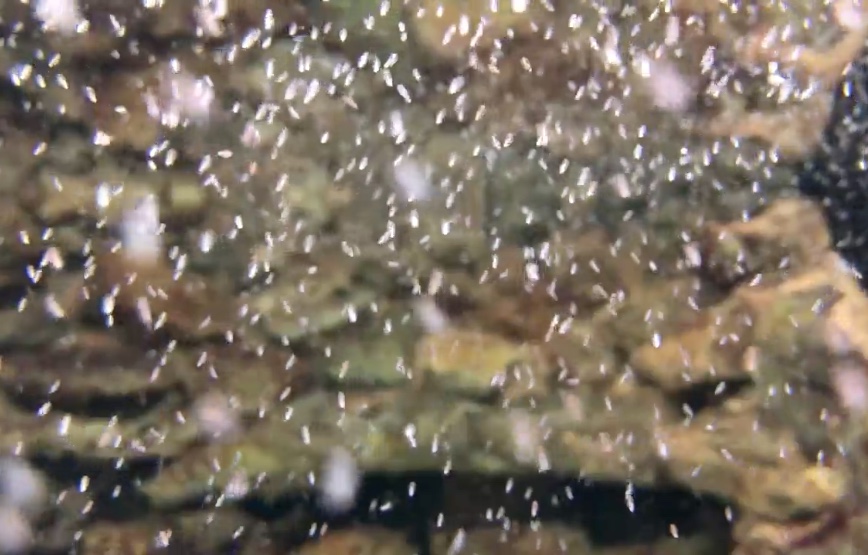'Male' Octopus Hatches 10,000 Teensy Babies in Surprise Birth
Sit back, clear your mind, and let this imagery sink in: "buckets and buckets and buckets full of tiny octopi."
That's what Devin Dumont — curator of the UGA Marine Education Center and Aquarium in Savannah, Georgia — said he found when he showed up to work last Tuesday, according to an interview with local news site Savannah Morning News.
"I noticed this cloud of moving dots and I realized, 'Oh my God... There are babies. There are babies everywhere,'" Dumont told Savannah Morning News. "I immediately started scooping them out and putting them in buckets."
Octavius, the aquarium's sole octopus resident, had apparently given birth to a brood of tens of thousands of tiny, confetti-size babies overnight. When Dumont found the brood swirling like a blizzard in Octavius' tank, he was surprised for a few reasons. [Photos: Ghostly Dumbo Octopus Dances In the Deep Sea]
For starters, nobody at the aquarium knew Octavius was pregnant. The full-grown female Octopus vulgaris had been donated to the Marine Education Center on Aug. 8 by the South Carolina Aquarium in Charleston, and had been living alone in her tank for more than two months, according to Savannah Morning News.
More importantly, nobody at the aquarium knew Octavius was a female when they adopted her (hence her masculine name, chosen via social media poll). This is not a hard mistake to make — male and female members of O. vulgaris look very similar, save for some minute differences on their third right arms.
But, in retrospect, Dumont said he should have recognized the signs that Octavius was preparing for motherhood. About a month ago, the octopus went from being a social darling keen on slapping her tentacles against the side of her tank to being a recluse, retreating into a cave near the back of her enclosure. Because female octopi can store sperm in their bodies for weeks before laying their eggs under optimal conditions, it's likely that Octavius was sizing up the safety of her tank before deciding to bring her babies into the world, Dumont said.
Get the world’s most fascinating discoveries delivered straight to your inbox.
In any case, the UGA Marine Education Center and Aquarium suddenly became about 10,000 octopi richer overnight. Some have since been installed in nursery tanks (not on public display). Others have been donated to a nearby shellfish research lab, while still others were released into the adjacent Skidaway River.
Hopefully, some will grow to fill their mama's eight wiggly shoes. As with most octopus moms, Octavius gave her all to ensure her eggs had a safe place to hatch, and she will soon enter into an octopus death spiral that culminates with her demise once her final babies are hatched.
RIP, Octavius. We hardly knew ye.
Originally published on Live Science.

Brandon is the space / physics editor at Live Science. With more than 20 years of editorial experience, his writing has appeared in The Washington Post, Reader's Digest, CBS.com, the Richard Dawkins Foundation website and other outlets. He holds a bachelor's degree in creative writing from the University of Arizona, with minors in journalism and media arts. His interests include black holes, asteroids and comets, and the search for extraterrestrial life.



